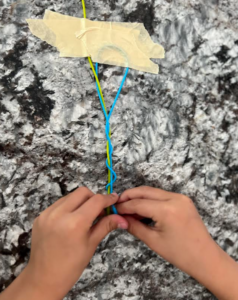3 Things To Say To Students Crushed By The Pandemic

I think back to when I was eight or eleven or fifteen years old. I’m not sure how I would have made it today, in this time of Covid.
Living in a pressure cooker of abuse, it was my friends who got me through it.
It was the neighborhood, the games of stickball, the hours spent talking under the streetlamps. It was the school I couldn’t wait to get to every day.
Most never knew.
But it didn’t matter. I had brotherhood. I had escape. I had freedom to get away from the fear and the distance to know that it couldn’t last.
I had teachers who knew, and looked after me. Teachers who inspired me, saved me, and somehow got me into college in another state.
But what of these kids?
Trapped and muted. Dreams shattered into pieces. Forced inside and away from the friendships that mean so much to them and the school that centers their life.
What do you say to them? How do you ease their pain? How do you provide comfort without putting your foot in your mouth or making things worse?
How?
You recite the following three phrases from that place in your own heart that knows suffering, loss, and disappointment.
“It’s okay to be sad.”
Sadness is part of living in a fallen world. It’s always with us, like a fault line running through granite batholithe. Denying it or pretending it doesn’t exist just makes students feel worse.
When you acknowledge it, however, when you confess that it’s part of being human, and that it’s okay, then they don’t feel so alone.
They don’t feel so weird and ostracized.
Social media tells them that if they’re not happy, then there is something wrong with them. You must counter this message with the truth.
You must tell them, say to them every day if need be, that sadness is a normal response to bad things happening in our life.
“It will get better.”
Children don’t have the life experience to fully grasp that the pandemic is temporary. It feels to them like the end of the world, like the life they once knew is over.
But it isn’t true. And they need an adult like y0u they trust and respect to set the record straight. This nightmare they’re living through shall pass.
They can still pursue their dreams to the full.
Coming from the right person, this message can have a powerful impact. It can give them just the encouragement they need to hang in there for just a few more weeks.
It can help them prepare, adjust, strategize, and be ready and excited to hit the ground running on a life that must be lived.
“You can overcome.”
Your belief in your students and what they’re capable of means everything to them. I know from experience. I had a teacher change my life because he saw something in me no one else did.
This alone, and nothing else, was enough.
Like Andy Dufresne escaping Shawshank, once that belief took root inside me, I was ready to crawl through sewage to reach my own dreams.
The human spirit can overcome great obstacles. Your stories and examples are important, to be sure. Lincoln, Mandela, Keller, Beethoven, Tubman, Hawking, Shackleton, Robinson, to name a few, have proven it can be done.
But it’s your unshakable belief in your students and their ability to grow and contribute and live productive lives that will have the greatest impact.
Believe in your students and it will come through in your every word and gesture. And it will change them.
Fields of Gold
Living through what Churchill called “the black dog” and coming out stronger than before isn’t easy, but with the support of people who care and understand, it’s possible.
The problem is that people are in short supply.
Some students haven’t seen their friends in nearly a year—or only from a distance—and their family may be too preoccupied with trying to survive themselves to notice.
But you can fill the void. You can offer hope and comfort by remembering the three phrases above and expressing them from the empathetic depths of your own setbacks and disappointments.
Let your strength be their strength.
It may seem as if you’re not needed much these days. Your lessons are dumbed down. Your expectations have bottomed out.
Masks, plexiglass barriers, physical distance, and in some cases even miles of radio waves stand between you and your students.
No matter. They need you more now than at any other time in your career. So I urge you, be that one teacher who sees through the forest to the fields of gold beyond.
Be that one teacher who tells the truth and then walks with them hand-in-hand through the valley of the shadow of death.
And to the other side.
PS – If you suspect a student is suffering from more than normal sadness due to life circumstances, then refer them to your school psychologist.
You can also call your local police for a check-in or the National Suicide Prevention Hotline at 800-273-8255.


No comments:
Post a Comment